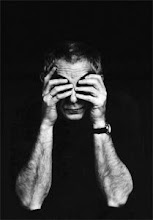
I remember the first Jafar Panahi film I saw, 'the white balloon', a story about a seven year old girl who wants to buy a goldfish, set against the corruption within the city of Tehran on new year’s eve. I was thrown by back by it’s simplicity whilst capturing the essense of a city. The film has since been a massive influence in the stories I strive to tell today.
Panahi would go onto tackle issues concerning the struggle of women in modern day Iran in films such as 'Offside' and 'the Circle' and how social unbalance can lead a person to crime in 'Crimson gold', making Panahi one of the most contemporary and important filmmakers of the last decade.
On the 20 December 2010, after being prosecuted for “assembly and colluding with the intention to commit crimes against the country’s national security and propaganda against the Islamic Republic,” Jafar Panahi was handed a six-year jail sentence and a 20-year ban on making or directing any movies, writing screenplays, giving any form of interview with Iranian or foreign media as well as leaving the country. And so with this, his latest work is ‘an effort’ as the credits read to express himself the only way he currently can.
And what an incredible effort it is. Shot with a PD-150 digital video camera and a smart phone, the result is a very textured and layered documentary about so many things, numerous viewings are required to enhance the audience’s mind further. Jafar Panahi and Mojbata Mirtahmasb explore the mind of not only a filmmaker, but of human beings.The two friends banter back and forth, even hilariously arguing at times about who's really directing the film. Panahi performs and reads a script he wanted to make before he was sentenced within his living room concerning a woman’s wanting to take up an art course at university, much to the dislike of her family. The passion to pursue the performance until the end falters unfortunately as Panahi wishes he could just make a film.
Whilst the subject matter of 'This Is Not a Film' may seem depressing, in fact, it captures more warmth and beauty within life's details more than any other film I can think of in terms of it's circumstances. The film itself is not an attack on what has happened to Panahi, it's more an observational piece of a man's final hours before the new year arrives. Whilst we watch Panahi eat breakfast, he questions whether if this is pretentious film making before they find subjects to bring into the documentary.
A neighbour calls around to ask Panahi to look after their dog. After he is pushed into taking on the responsibility and the dog won't stop barking, he quickly tells the neighbour he has changed his mind. We don't see the neighbour but yearn to behind an open door as the camera hides from the neighbour and watches on as Panahi converses. One of the greatest stars of the film is Panahi's lizard which roams about the room, at points over Panahi's chest and shoulder.
In one of the funniest and warmest scenes I have ever seen in cinema, is when Panahi follows a fill in custodian for the building out of his flat. Panahi rides down the elevator with the young man as he reveals he was in the building the night the police raided Panahi’s apartment and arrested him. We yearn to hear more of the custodian's story as he is constantly interrupted by stops to collect the trash. The pauses seem to last forever. The conversation flows effortlessly and with so much joy, humour and surprise in this small journey which ends with this final long take in the elevator and into a fiery darkness. At last venturing outdoors, Panahi comes across the streets of fire, celebrations and yelling, a haunting final image and hopefully not the last image he will ever film.
Considering the deeply saddening circumstances of 'This Is Not a Film', the film is in fact an act of celebration and defiance, something akin to a miracle.
'Our problems are also all of our assets. Understanding this promising paradox helped us not to lose hope, and to be able to go on since we believe wherever in the world that we live, we are going to face problems, big or small. But it is our duty not to be defeated and to find solutions …The reality of being alive and the dream of keeping cinema alive motivated us to go through the existing limitations in Iranian cinema.' - Jafar Panahi

No comments:
Post a Comment